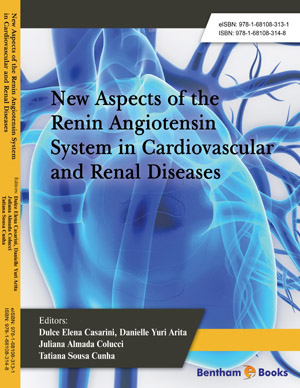Abstract
The renin-angiotensin system (RAS) affects both the innate and adaptive immune responses. Since hyperactive RAS has been associated with several diseases, the contribution of tissue RAS to the progression of immune and non-immune conditions has been considered in the recent years. It has a well-established role in fibrinogenesis, leukocyte infiltration, activity of T cells and has been shown to be chemotactic to macrophages, T cells, and natural killer cells. Nitric oxide (NO) is synthesized by many cell types involved in immunity and inflammation and plays an important role in hypotension and regulates the functional activity, growth and death of many immune and inflammatory cell types. Current evidences suggest that catecholamines (CAs) play a key role in activating and limiting inflammatory and immune reactions. In this chapter, we will discuss some aspects related to the role of these molecules in inflammatory process and immunologically mediated conditions.
Keywords: Catecholamines, HPA axis, Immune system, Nitric oxide, Renal physiology, Renin-angiotensin system, Sympathetic nervous system.






















